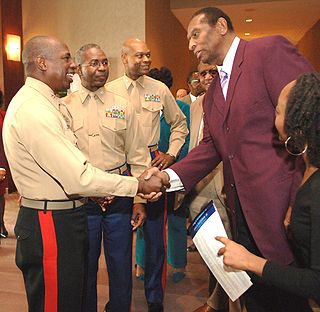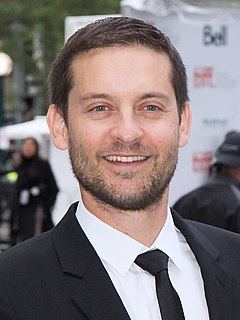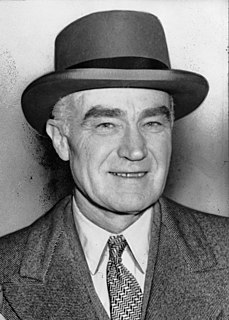A Quote by Voltaire
The famous physician Dumoulin said when dying, 'I leave two great physicians behind me, simple food and pure water.'
Related Quotes
The world is deathly ill. It is dying. The Great Physician has already signed the death certificate. Yet, there is still a great work for Christians to do. They are to be streams of living water, channels of mercy to those who are still in the world. It is possible for them to do this because they are overcomers.
If you look at me, basically my whole entire life I've been around water. So when you look at a stat like, "If you leave the faucet running for two minutes while you brush your teeth you waste four gallons of water," to me that's mind-blowing. There are so many people that don't even have access to clean water, and people leave their faucets running. For me it was something that fit with things that I believe in.
One kid said to me, he said, Mr. Lloyd, we really owe you. And I explained to him, man, you owe me absolutely nothing. I said, whatever kind of career I had, it has served me well, but you do owe some people. And the people you owe are the folks who are going to come behind you. It's incumbent upon each watch — when you play your 10, 11 years and you're in your group — when you leave, I truly hope that you've done all you can possibly do to leave it a better place for the folks who come behind you.
Doctor Johnson said, that in sickness there were three things that were material; the physician, the disease, and the patient: and if any two of these joined, then they get the victory; for, Ne Hercules quidem contra duos [Not even Hercules himself is a match for two]. If the physician and the patient join, then down goes the disease; for then the patient recovers: if the physician and the disease join, that is a strong disease; and the physician mistaking the cure, then down goes the patient: if the patient and the disease join, then down goes the physician; for he is discredited.
This is a precious possession which we cannot afford to tarnish, but society always is attempting to make the physician into a killer to kill the defective child at birth, to leave the sleeping pills beside the bed of the cancer patient ... It is the duty of society to protect the physicians from such requests.
Love, n. A temporary insanity curable by marriage or by removal of the patient from the influences under which he incurred the disorder. This disease, like caries and many other ailments, is prevalent only among civilized races living under artificial conditions; barbarous nations breathing pure air and eating simple food enjoy immunity from its ravages. It is sometimes fatal, but more frequently to the physician than to the patient.
A great biography should, like the close of a great drama, leave behind it a feeling of serenity. We collect into a small bunch the flowers, the few flowers, which brought sweetness into a life, and present it as an offering to an accomplished destiny. It is the dying refrain of a completed song, the final verse of a finished poem.






































